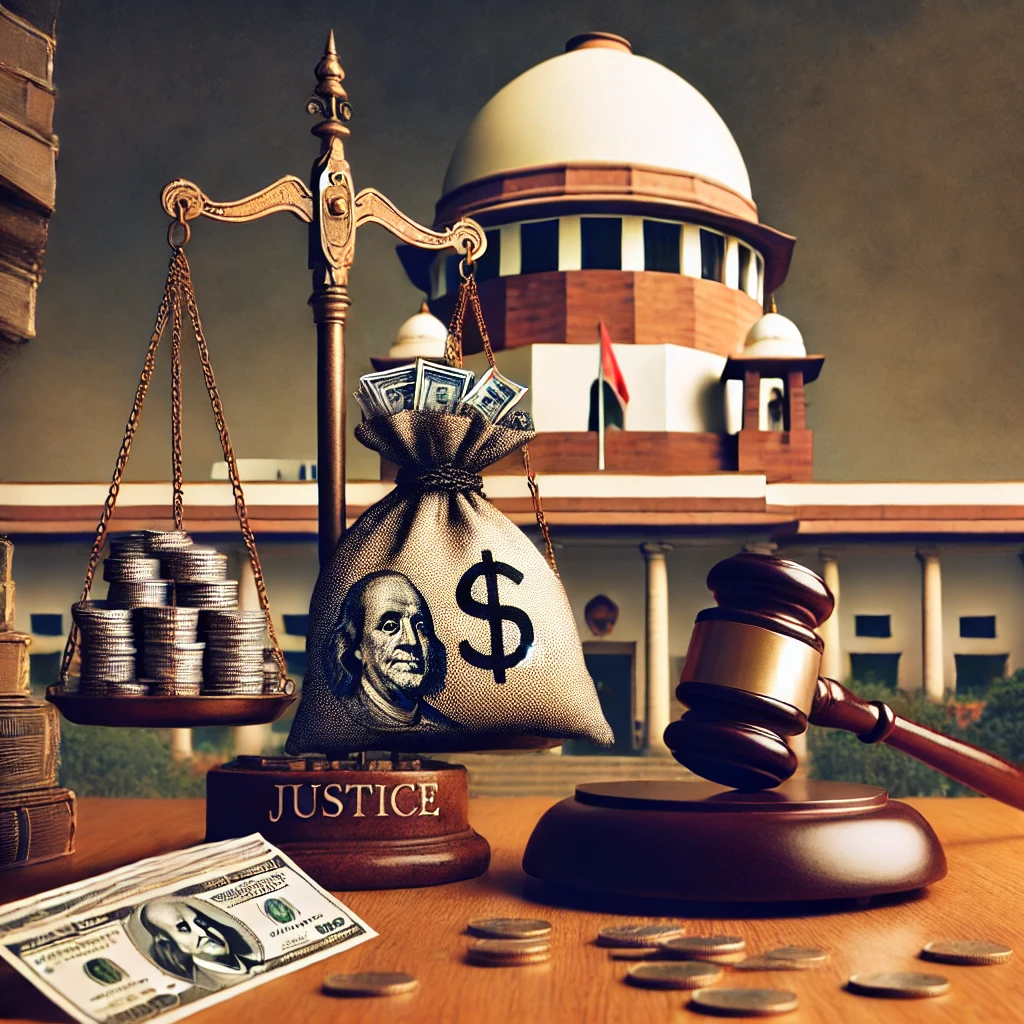Finance Law in Ghana
Finance Law in Ghana is designed to regulate the financial sector, promote economic stability, and ensure proper governance within the country’s financial system. The framework covers a wide range of laws and regulations, including banking, taxation, corporate finance, securities, insurance, and foreign investment, with a focus on fostering growth and attracting foreign investment.
Here’s an overview of finance law in Ghana:
1. General Financial Legal Framework
Constitutional Framework: The Constitution of Ghana establishes the foundation for the country's legal and economic systems. It provides for the creation of laws governing taxation, business operations, and the management of the country’s financial resources.
Key Financial Laws: Ghana’s financial system is governed by several key pieces of legislation:
- The Bank of Ghana Act, 2002 (Act 612): This law establishes the Bank of Ghana (BoG) as the central bank of the country, regulating monetary policy, currency, and banking operations.
- The Banking Act, 2004 (Act 673): Regulates the operations of banks and financial institutions in Ghana.
- The Securities Industry Act, 1993 (Act 333): Regulates the securities and capital markets, governing the issuance and trading of stocks and bonds.
- The Financial Administration Act, 2003 (Act 654): Provides the legal framework for managing government financial operations, budgeting, and auditing.
Regulatory Authorities:
- Bank of Ghana (BoG): The central regulatory authority responsible for overseeing the financial system, monetary policy, and the stability of the banking sector.
- Securities and Exchange Commission (SEC): The SEC regulates Ghana’s securities market, ensuring compliance with the Securities Industry Act.
- National Insurance Commission (NIC): Regulates and supervises insurance companies, pension funds, and other related financial services.
- Ghana Revenue Authority (GRA): The GRA oversees tax administration, collection, and enforcement.
2. Banking and Financial Institutions
Banking Regulation: The Bank of Ghana oversees the banking sector, ensuring that financial institutions adhere to established regulations. The BoG is responsible for licensing, supervising, and regulating banks, microfinance institutions, and non-bank financial institutions (NBFIs).
- Capital Adequacy: Banks and other financial institutions are required to maintain a minimum capital base to operate, which is periodically adjusted by the BoG to ensure financial stability.
- Monetary Policy: The Bank of Ghana implements monetary policies aimed at controlling inflation, stabilizing the currency (the Ghanaian cedi), and ensuring overall economic stability. These policies include setting interest rates, managing reserve requirements, and using open market operations.
Microfinance Institutions (MFIs): The government of Ghana has encouraged the establishment of microfinance institutions to promote financial inclusion, particularly in rural areas. The BoG regulates MFIs to ensure their solvency and operational efficiency.
3. Taxation Law
Corporate Tax: The corporate tax rate in Ghana is generally 25% for most businesses. However, special tax rates may apply to certain sectors such as mining and petroleum.
Personal Income Tax: Ghana follows a progressive tax system for individuals, with rates ranging from 0% to 30% depending on income levels.
Value Added Tax (VAT): The standard VAT rate is 12.5%, with some goods and services exempt or subject to reduced rates, such as basic foodstuffs and medical services.
Capital Gains Tax: Capital gains tax in Ghana is 15% on the sale of property or shares. There are exemptions for certain types of capital gains, such as those derived from the sale of agricultural land and qualifying investments.
Withholding Tax: Ghana also imposes withholding taxes on income such as dividends, interest, and royalties. These taxes are generally deducted at source and range from 5% to 15% depending on the type of payment.
Tax Administration: The Ghana Revenue Authority (GRA) is responsible for the administration of taxes, including collection, enforcement, and audit. The GRA is also responsible for managing the country's taxpayer identification number (TIN) system.
4. Corporate Finance and Investment
- Company Law: The Companies Act, 2019 (Act 992) governs the incorporation and management of companies in Ghana. It outlines the procedures for establishing businesses, corporate governance, and dissolution. Companies can operate as private limited companies (Ltd) or public limited companies (PLC).
- Investment Laws: Ghana provides a pro-investment environment and offers incentives to both domestic and foreign investors. The Ghana Investment Promotion Centre (GIPC) is the key body responsible for facilitating investments in the country.
- Foreign Investment: Foreign investors are allowed to fully own businesses in most sectors, though there are some restrictions in areas such as retail trade. The GIPC offers incentives such as tax holidays and customs exemptions for large investments in sectors like mining, agriculture, and energy.
- Public-Private Partnerships (PPP): Ghana actively encourages PPP arrangements in sectors such as infrastructure, energy, and healthcare, offering tax incentives and streamlined regulatory processes to attract investment.
5. Insurance and Pensions
- Insurance Regulation: The National Insurance Commission (NIC) regulates the insurance market in Ghana. The insurance sector is divided into life insurance, non-life insurance, and reinsurance. Insurers must comply with stringent capital requirements and solvency margins to protect policyholders.
- Pension System: Ghana has a three-pillar pension system:
- Public Pension Scheme (SSNIT): A mandatory social security scheme run by the Social Security and National Insurance Trust (SSNIT), which provides pensions for formal sector workers.
- Private Pension Funds: Employers are required to set up private pension funds for employees, in addition to the public scheme, under the National Pensions Act, 2008 (Act 766).
- Voluntary Pension Schemes: Individuals and companies can also contribute to voluntary pension schemes.
6. Foreign Exchange and Currency Controls
- Currency: The official currency of Ghana is the Ghanaian cedi (GHS). The Bank of Ghana is responsible for managing the monetary policy and regulating the currency.
- Foreign Exchange Market: Ghana operates a managed floating exchange rate system, meaning the value of the cedi is influenced by both market forces and interventions by the Bank of Ghana. The central bank intervenes in the foreign exchange market to stabilize the currency when necessary.
- Currency Controls: Ghana has relatively liberalized foreign exchange controls, though there are certain regulations on the repatriation of profits and dividends by foreign investors. The Bank of Ghana monitors the movement of foreign capital to avoid excessive volatility in the foreign exchange market.
7. Bankruptcy and Insolvency
- Insolvency Law: The Insolvency Act, 2006 (Act 726) provides the legal framework for dealing with bankruptcy and liquidation in Ghana. The law sets out procedures for both corporate and personal bankruptcy, as well as the reorganization of companies in financial distress.
- Liquidation: Companies that are unable to pay their debts may be liquidated, and their assets are sold to repay creditors. This process is supervised by the Official Receiver.
- Corporate Rescue: The law also allows for the reorganization or rescue of businesses facing financial difficulties through a court-approved restructuring plan.
8. Consumer Protection and Financial Services
- Consumer Protection Laws: Ghana has laws aimed at protecting consumers in financial transactions. The Consumer Protection Act, 2012 (Act 851) regulates consumer rights, including protections against fraud and unfair business practices.
- Financial Consumer Protection: The Bank of Ghana and the Ghana Securities and Exchange Commission (SEC) also oversee consumer protection in the financial sector, ensuring transparency in the provision of financial services and safeguarding consumers from harmful practices.
- Financial Literacy and Inclusion: The government has promoted financial literacy programs aimed at increasing access to financial services, particularly for underserved populations.
9. Cryptocurrency and Digital Assets
- Cryptocurrency Regulation: While cryptocurrency is not yet formally regulated in Ghana, the Bank of Ghana has issued a public notice warning the public about the risks associated with cryptocurrency trading. The central bank has cautioned against the use of cryptocurrencies as legal tender, although it does not prohibit their use in transactions.
- Digital Financial Services: Ghana has a growing mobile money sector, with services like MTN Mobile Money and Vodafone Cash being widely used for payments and savings. The Bank of Ghana has introduced regulations to govern mobile money services and protect users.
10. Economic Development and Infrastructure
- Infrastructure Investment: Ghana continues to focus on infrastructure development, particularly in sectors such as energy, transport, education, and healthcare. The government has prioritized public-private partnerships (PPPs) and foreign investment to fund large-scale infrastructure projects.
- Economic Growth: The Ghanaian economy has been growing steadily, driven by key sectors like mining, oil and gas, agriculture, and manufacturing. The country also has significant potential in renewable energy, tourism, and technology.
Key Takeaways:
- Taxation: Ghana’s tax system includes corporate tax (25%), personal income tax (progressive), VAT (12.5%), and capital gains tax (15%).
- Banking and Financial Sector: The Bank of Ghana regulates the banking system, which includes commercial banks, microfinance institutions, and non-bank financial institutions.
- Investment: Ghana has a pro-investment environment, with incentives for foreign investors, particularly in sectors such as mining, energy, and agriculture.
- Cryptocurrency: Ghana has not formally regulated cryptocurrencies but has issued warnings about their risks while promoting digital financial services such as mobile money.
- Economic Growth: The Ghanaian economy continues to grow with a focus on improving infrastructure, attracting investment, and developing key sectors such as oil and gas and agriculture.
In conclusion, finance law in Ghana provides a legal and regulatory framework aimed at fostering financial stability, supporting economic development, and ensuring that businesses, consumers, and investors operate within a secure and predictable environment. The country continues to improve its legal infrastructure to encourage investment and growth in various sectors.




























0 comments